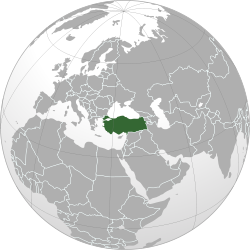Turkey’s Kurdish Impasse: The View From Diyarbakır
Though battered economically, socially and politically for decades, the city and province of Diyarbakır could offer hope for Turks and Kurds who want to live together, if Ankara can refocus its policies on creating a more equal, democratic Turkey.
Turkey’s Kurdish Impasse: The View from Diyarbakır, the latest report from the International Crisis Group, examines the country’s biggest Kurdish-majority city and province in light of the main issues underlying the Kurdish problem and the Kurdistan Workers’ Party (PKK) insurgency: mother language, local government and identity and political representation.

“The armed conflict is more violent than ever before in the past decade and has killed over 870 people since June 2011”, says Didem Collinsworth, Crisis Group’s Turkey/Cyprus Analyst. “Yet across the political spectrum in Diyarbakır, among Kurds and Turks, rich and poor, Islamic and secular, there is a shared desire for a common future based on a clear government strategy to resolve the chronic issues of Turkey’s Kurdish problem”.
Grievances that underlie support within the Kurdish movement for the PKK’s armed struggle remain strong in the south east: local government’s resentment at decisions made by Ankara-appointed officials, anger at mass arrests of political representatives and frustration at the bans on the public use of Kurdish. A budding economic revival risks being undermined by the PKK insurgency and lack of interest from state and private investors.
The political scene in Diyarbakır is not monolithic. Though dominant nationally, the Justice and Development Party (AKP) has lost much of its local appeal. However, the Kurdish movement’s Peace and Democracy Party (BDP), Diyarbakır’s strongest political force, has yet to prove its ability to distance itself from an increasingly violent PKK. The moderately Islamic Gülen movement is trying to offer an alternative, and Kurdish Islamic groups are boosting their already substantial influence.
Leaderships in Turkey as a whole, and majority Kurdish-speaking areas like Diyarbakır in particular, need to work pro-actively on four lines of reform, which Crisis Group has outlined in two previous reports: ensuring full mother-language rights in education and public life; a new, informed debate on decentralisation and a strategy to implement it; reducing the threshold for election to the national parliament to 5 per cent from 10 per cent to allow fairer representation; and stripping discrimination from the constitution and laws. The government should also urgently undertake legal reform to end mass arrests and lengthy pre-trial detentions of non-violent activists on terrorism charges.
Both sides need to show true leadership by eschewing violence, committing to dialogue and achieving the Kurds’ legitimate aspirations through Turkey’s existing legal structures. They can strengthen Kurds’ trust in the state by resolving pressing local problems in Diyarbakır and ensuring its long-term development.
The civilian population and local politics are increasingly stressed and polarised by rising tensions. “The struggle for the hearts and minds of Diyarbakır residents – and of Kurds at large – is not yet lost”, says Hugh Pope, Crisis Group’s Turkey/Cyprus Project Director. “If both sides place more emphasis on fostering realistic discussion of differences than on populist rhetoric, there are still many reasons to hope that Turks’ and Kurds’ millennium-long common history can continue more harmoniously”.
